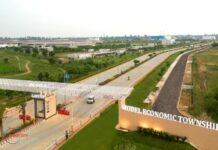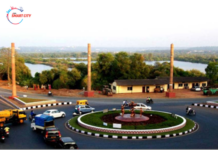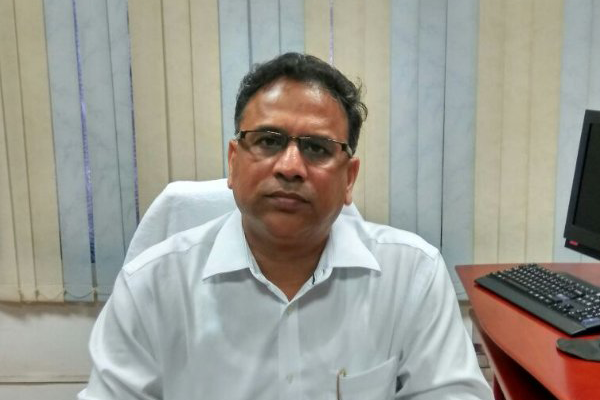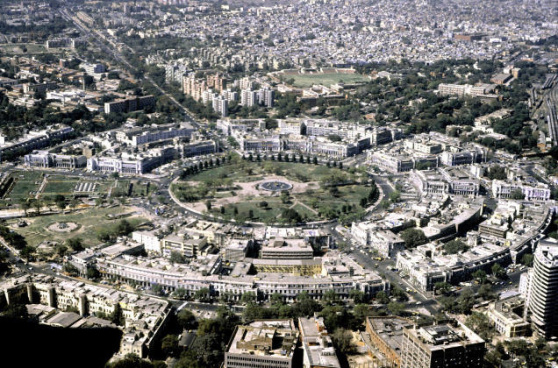
Favourable government policies will drive realty companies to invest in smart city projects in a big way, says Anuj Goel, MD, KDP Infrastructure Pvt Ltd in an interaction with ENN
Give us an overview of the operations of your organisation.
KDP Infrastructure Pvt Ltd has been into residential and commercial infrastructure development business for more than a decade now. Our residential project “KDP Grand Savanna” in Raj Nagar Extension, Ghaziabad is one of the most successful ones, housing a large clientele including eminent personalities, doctors, engineers, industry professionals, NRIs and businessmen.
Besides, the company is also into commercial projects, with Greater Noida Shopping Plaza being one of the most acclaimed ones and best in its class. It boasts of unmatched facilities of various sizes to suit various requirements. Basically, it has been designed to provide open offices where space is flexible, adaptable and versatile encompassing wide road facilities, huge parking space and three side open green fields.
The concept of smart city is catching up fast globally. How would you define it?
Smart city, as we call it, is a well planned and developed city offering everything from a variety of housing options, schools, colleges, hospitals, malls, sports facilities, water parks, gardens and a host of other facilities.
This smart city would completely run on technology—be it electricity, water, sanitation and recycling. Various amenities made available at one location, such as 24/7 water supply, Wi-Fi connectivity through the city, intelligent transport, etc. In addition, smart cards — with embedded facial recognition facility — for cashless transactions are an integral part of a smart city initiative, which in turn would also act as an advanced security system. The same smart cards would also help operate the electrical equipment at home via motion sensor technology. And, all this would happen with a promise for 30 percent savings on electricity and water costs.
How would you describe the future of smart city development in India?
With the new government in office, India is set to undergo a massive change in the infrastructure development sector. Development being the prime focus has already attracted an offer from the Singapore Government to help create smart cities across India. If the government policies are favourable, many real estate companies within and outside India will invest in the future smart cities projects. This move will help bring a phenomenal growth in promoting modern living for the Indian community.
Smart houses and facilities make a city smart. Any plans to venture into the domain?
We would be eager to be a part of smart cities development, if the government policies encourage and extend assistance in terms of land allotment, approvals, technical and financial assistance, whether jointly or individually, so that we can also take part in the process of nation building.
Do you think the Indian real estate sector is ready to take the smart city challenge?
Some of our real estate companies have already created or are in the process of creating smart cities. In fact, many big players in India are competent and motivated enough to develop such infrastructure projects.
What are the drivers and barriers for smart cities’ growth in the country?
Demand for housing is growing because of the ever-increasing population. Smart cities will facilitate urban as well as rural development that would result in more employment opportunities. However, problems like labour shortage, cumbersome approval systems, economic slowdown and other issues need to be addressed by the new government to accelerate the growth engine.
For long, the real estate fraternity has been in distress owing to a number of reasons — right or wrong. However, the segment is reckoned to be the second largest in terms of employment as it holds great potential for growth. It is also the second-biggest contributor in terms of GDP – next only to agriculture. The new NDA government under the dynamic leadership of Narendra Modi, which got an unprecedented majority, seems to be confident of and consistent in its new vision. We look forward to see some drastic changes in the infrastructure-related policies, so as to ensure that development and growth of the country is given top priority.
What are your expectations of the Modi Government?
Well, the real estate developers and its national association—CREDAI—have been craving for a number of actions on the part of the government. Our wish-list includes the following:
* Real estate must be recognised as an industry so that all government assistance and financial support, as provided available to other industries, could be availed to the developers as well;
* Home loans must be made available at cheaper interest rates, so that customers can go in for a home without stretching themselves too much;
* FDI and financial assistance from domestic institutions to developers should be encouraged to sustain a competitive situation, especially in the housing sector where growth potential for affordable homes is tremendous; and
* The government must ensure a single window system for approvals.






















